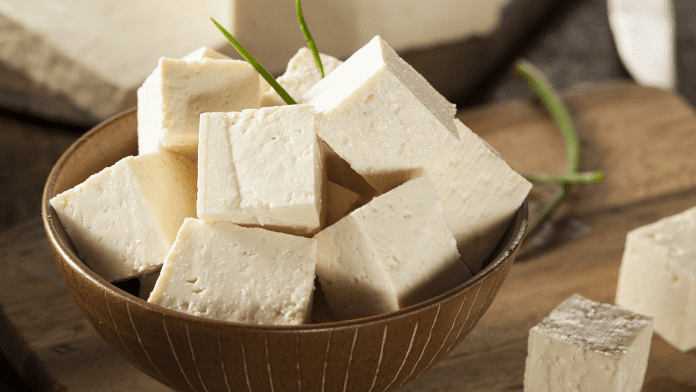Prostate cancer is one of the most prevalent cancers affecting men worldwide. It is estimated that one in eight men will be diagnosed with prostate cancer during their lifetime. With such alarming statistics, it is crucial to explore preventive measures and potential remedies to shield men from this disease. In recent years, there has been growing interest in the role of diet and specific food choices in reducing the risk of prostate cancer. One food that has gained attention for its potential protective effects is tofu. This article aims to delve into the relationship between tofu consumption and prostate cancer prevention, highlighting the key nutrients and compounds found in tofu that contribute to its cancer-fighting properties.
What is Tofu?
Tofu, also known as bean curd, is a popular plant-based protein source made from soybeans. It has been a staple in Asian cuisine for centuries and has gained popularity worldwide due to its versatility and health benefits. Tofu is low in calories, cholesterol-free, and packed with essential nutrients, making it an excellent addition to a balanced diet. It is rich in protein, healthy fats, vitamins, minerals, and phytochemicals, all of which play a vital role in promoting overall health.
The Link between Tofu and Prostate Cancer Prevention:
Numerous studies have explored the relationship between tofu consumption and prostate cancer prevention, with promising results. One of the key components of tofu is soy isoflavones, which are a type of phytoestrogen. Phytoestrogens are plant-derived compounds that have a similar structure to estrogen, a hormone known to play a role in prostate cancer development. However, unlike estrogen, soy isoflavones have weak estrogenic activity and may even have anti-cancer properties.
Isoflavones and Prostate Cancer:
Several studies have investigated the effects of soy isoflavones on prostate cancer risk and progression. Isoflavones have been found to inhibit the growth of prostate cancer cells and reduce the risk of tumor formation. They possess antioxidant and anti-inflammatory properties, which can help protect against DNA damage and inhibit the development of cancerous cells. Additionally, soy isoflavones may modulate hormone levels in the body, including reducing the production of testosterone, which is linked to prostate cancer growth.
Phytochemicals and Antioxidants in Tofu:
Apart from isoflavones, tofu is also rich in other phytochemicals and antioxidants that contribute to its cancer-fighting properties. Genistein, daidzein, and glyceollins are some of the key phytochemicals found in soy products like tofu. These compounds have been shown to inhibit the proliferation of prostate cancer cells, induce apoptosis (cell death), and suppress the formation of new blood vessels that feed tumors. Moreover, the high antioxidant content of tofu helps neutralize harmful free radicals, which are associated with cancer development.
Omega-3 Fatty Acids in Tofu:
Tofu is an excellent source of omega-3 fatty acids, which are essential polyunsaturated fats that have been linked to a reduced risk of prostate cancer. Omega-3 fatty acids possess anti-inflammatory properties and may help regulate cell growth, reduce tumor angiogenesis, and enhance the efficacyof chemotherapy and radiation therapy. Including tofu in the diet can provide a plant-based source of omega-3 fatty acids, offering potential protection against prostate cancer.
Tofu and Dietary Fiber:
Dietary fiber plays a crucial role in maintaining digestive health and preventing various diseases, including cancer. Tofu contains dietary fiber, which promotes regular bowel movements and helps eliminate waste and toxins from the body. Adequate fiber intake has been associated with a lower risk of prostate cancer. By including tofu in the diet, men can increase their fiber intake and support overall gut health, potentially reducing the risk of prostate cancer.
Tofu as a Plant-Based Protein Source:
Tofu is an excellent plant-based protein source, containing all essential amino acids needed for proper body function. Opting for plant-based proteins, such as tofu, can have several advantages for prostate health. Animal-based proteins, particularly those from red and processed meats, have been associated with an increased risk of prostate cancer. By substituting animal proteins with tofu, men can lower their intake of potentially harmful substances and consume a healthier protein alternative.
Incorporating Tofu into the Diet:
Introducing tofu into the diet can be a simple and enjoyable process. Tofu is a versatile ingredient that can be incorporated into various dishes. It can be stir-fried, grilled, baked, blended into smoothies, or used as a substitute for animal-based proteins in recipes. Tofu absorbs flavors well, making it an adaptable ingredient in both savory and sweet dishes. Experimenting with different cooking methods and flavor combinations can make tofu an appealing addition to any diet.
Final Thoughts:
Prostate cancer is a significant health concern for men worldwide, and adopting preventive measures is essential. While there is no guaranteed way to prevent prostate cancer, making dietary choices that incorporate cancer-fighting foods like tofu can potentially reduce the risk. Tofu’s nutrient profile, including soy isoflavones, phytochemicals, antioxidants, omega-3 fatty acids, and dietary fiber, contributes to its cancer-fighting properties.
By consuming tofu as part of a balanced diet, men can benefit from its potential protective effects against prostate cancer. However, it is important to note that diet is just one aspect of prostate cancer prevention, and individuals should also focus on maintaining a healthy lifestyle, regular exercise, and routine screenings to maximize their overall health and well-being.





